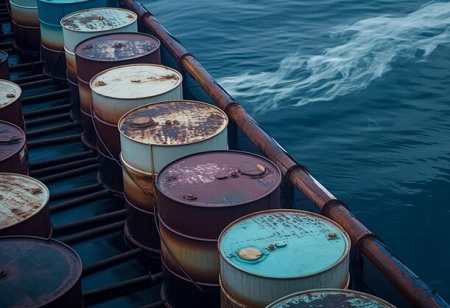
India Explores Strategic Oil Storage Leasing; Abu Dhabi Secures Rights in Padur

 In a significant business-oriented move, the Government of India has unveiled plans to lease out storage space in underground rock caverns initially designed for storing hydrocarbons. This strategic decision comes as a response to evolving trends in the global oil markets and a commitment to optimizing existing infrastructure for enhanced energy security. The underground storage facilities, strategically located in three southern Indian cities - Visakhapatnam, Mangalore, and Padur in Karnataka - were originally constructed by India Strategic Petroleum Reserve Ltd. to store 5.33 million tonnes of oil for emergency situations such as supply disruptions or war.
In a significant business-oriented move, the Government of India has unveiled plans to lease out storage space in underground rock caverns initially designed for storing hydrocarbons. This strategic decision comes as a response to evolving trends in the global oil markets and a commitment to optimizing existing infrastructure for enhanced energy security. The underground storage facilities, strategically located in three southern Indian cities - Visakhapatnam, Mangalore, and Padur in Karnataka - were originally constructed by India Strategic Petroleum Reserve Ltd. to store 5.33 million tonnes of oil for emergency situations such as supply disruptions or war.
The announcement stated that an expression of interest for leasing the storage facilities would be issued shortly, marking a pivotal moment in India's energy management approach. By deferring plans to fill these caverns with crude oil, the government aims to leverage these assets for commercial utilization and meeting evolving energy needs.
Notably, the National Oil Company (Adnoc) from Abu Dhabi has already secured leasing rights for a substantial portion of the storage capacity at Padur and Mangalore. However, a significant amount of storage space remains available, including 0.75 million tonnes at Mangalore and the vacant portion in Visakhapatnam, as confirmed by LR Jain, CEO and Managing Director of Indian Strategic Petroleum Reserves Limited (ISPRL).
This move underscores India's adaptability to changing market dynamics and its commitment to bolstering energy security through strategic business decisions. While international companies can lease these reserves, India has secured a provision ensuring priority access to the stored oil during emergency situations, demonstrating a keen focus on national energy security.
India's shift towards leasing these caverns marks a strategic business pivot, aligning with its position as the world's third-largest oil importer and consumer. By optimizing existing infrastructure and engaging with international partners, India aims to enhance energy resilience and mitigate risks associated with global market fluctuations. As the nation continues its pursuit of sustainable economic growth, such strategic business initiatives play a pivotal role in securing its energy future.